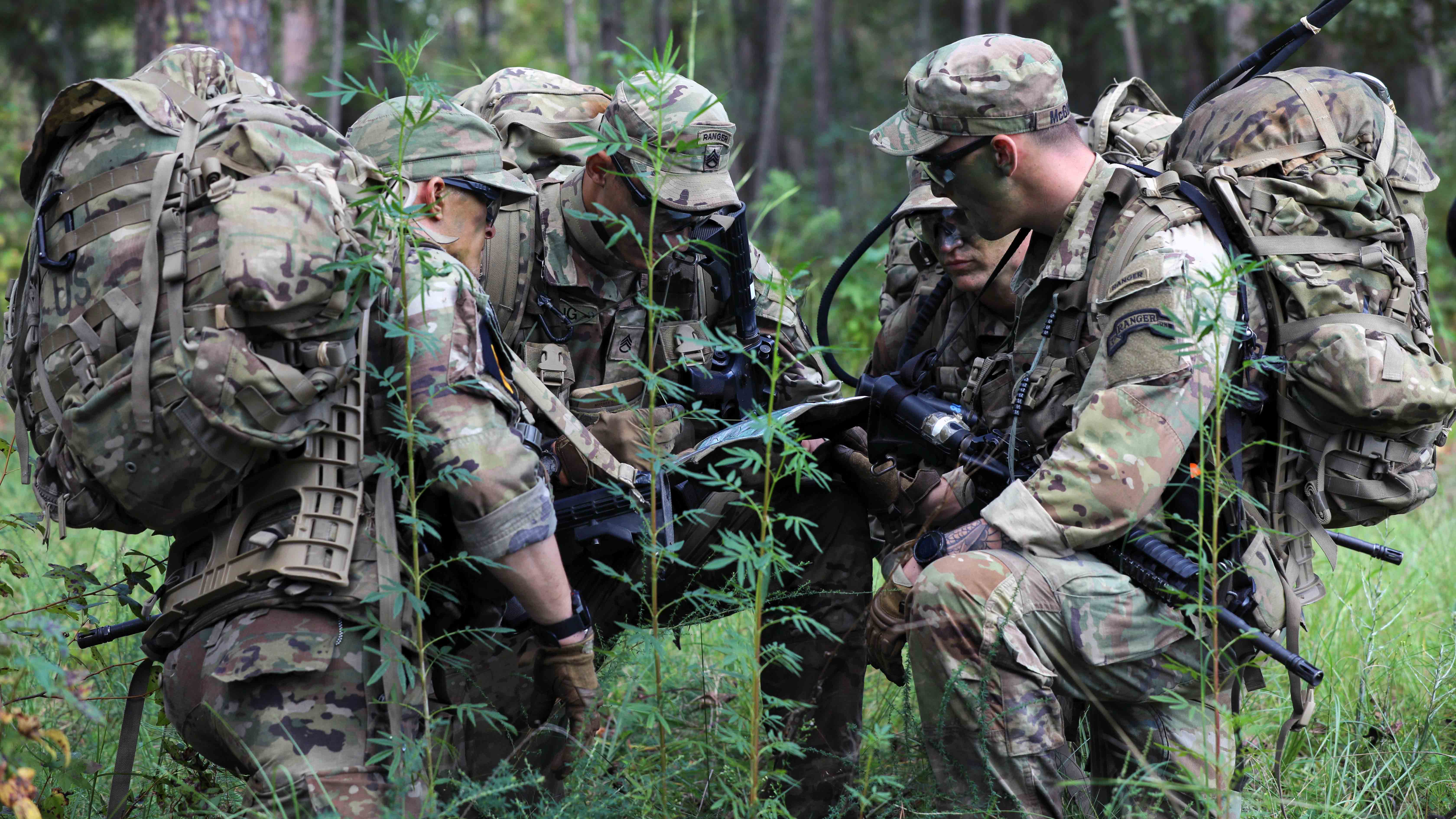Rainey: Leaders, Soldiers Still Key to Future Fight
Rainey: Leaders, Soldiers Still Key to Future Fight

Technology will be a necessary part of future battle, but the Army’s strength lies in its leaders and soldiers’ ability to shoot, move and communicate, said Gen. James Rainey, commander of Army Futures Command.
Speaking at the recent 2023 Maneuver Warfighter Conference at Fort Moore, Georgia, formerly known as Fort Benning, Rainey and the command’s senior enlisted leader, Command Sgt. Maj. Brian Hester, emphasized the need for soldiers to be good at the basics of fighting and killing the enemy.
When it comes to the land domain, Rainey said, there will be no future scenario anywhere in the world where the Army will not have “absolute dominance.” That comes with the ability to close the last 500 meters “at night, in the dark, when you’re smoked,” where soldiers might have to “kill people the old-fashioned way,” he said.
“Not to glorify, but we better have that competence, because that’s how we’re going to deter the enemy, that’s what the enemy is scared of,” Rainey said, adding that the adversary in a war between superpowers will “not want to get into a close combat fight with the United States Army.”
He noted that while data will help inform leaders, it will never be a top factor in a leader’s decision to maneuver on the battlefield. He cautioned that leaders who are uncomfortable with technology “are going to pay for it at an unprecedented level,” because it will be an important piece to understanding a sensor-rich, contested environment.
“If you're a maneuver commander, and you can shoot, move and communicate, and you're an inspirational officer or NCO and you understand technology, you're going to have the ability to bring hate and discontent on the enemy at an unprecedented level,” Rainey said.
Describing the NCO corps as the Army’s “superpower,” Hester said the ability to dominate in close combat comes from lots of training. He echoed Sgt. Maj. of the Army Michael Weimer’s call for soldiers to be “brilliant at the basics.”
“Noncommissioned officers are our superpower, but being brilliant at doing the things that only we can do with multiple [repetitions] and sets will equal our ability to be excellent at the time when we need to stab somebody in the neck or set something on fire,” Hester said.
Regardless of the technology that is put into the Army’s formations, whether it’s robotics or “some other kind of sexy materiel that’s developed by our scientists and our engineers,” Hester said, nothing will replace soldiers “closing with and imposing our will upon our enemy.”

